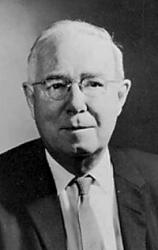Planning worship?
Check out our sister site, ZeteoSearch.org,
for 20+ additional resources related to your search.
- |
User Links
Person Results
John Oxenham

1852 - 1941 Person Name: John Oxenham, 1852-1941 Author of "Peace in Our Time, O Lord" in Hymnal of the Church of God John Oxenham is a pseudonym for William Arthur Dunkerley, and is used as the name authority by the Library of Congress.
John Oxenham
George J. Elvey

1816 - 1893 Person Name: George J. Elvey, 1816-1893 Composer of "DIADEMATA" in Hymnal of the Church of God George Job Elvey (b. Canterbury, England, 1816; d. Windlesham, Surrey, England, 1893) As a young boy, Elvey was a chorister in Canterbury Cathedral. Living and studying with his brother Stephen, he was educated at Oxford and at the Royal Academy of Music. At age nineteen Elvey became organist and master of the boys' choir at St. George Chapel, Windsor, where he remained until his retirement in 1882. He was frequently called upon to provide music for royal ceremonies such as Princess Louise's wedding in 1871 (after which he was knighted). Elvey also composed hymn tunes, anthems, oratorios, and service music.
Bert Polman
George J. Elvey
Leo Sowerby

1895 - 1968 Composer of "TAYLOR HALL" in The Hymnal of the Protestant Episcopal Church in the United States of America 1940 Leo Sowerby (1895-1968) was born in Grand Rapids and studied at the American Conservatory of Music, Chicago (M.A. 1918). He served as regimental bandmaster with the 332nd Field Artillery Band in both England and France (1917-1919). He became the first fellow of the American Academy in Rome, where he studied for three years. He participated in the Salzburg Festival for Contemporary Music in 1923. From 1924 to 1963 he was on the faculty of the American Conservatory. He also was organist and choirmaster of St. James Church (1927-1963). Sowerby had an interest in folk music which he turned into wonderful compositions. He won a Pulitzer Prize for his Canticle of the Sun (1946). He died at Port Clinton, Ohio.
--Presbyterian Hymnal Companion
Leo Sowerby
Johann Sebastian Bach

1685 - 1750 Composer (Attributed to) of "ICH HALTE TREULICH STILL" in At Worship Johann Sebastian Bach was born at Eisenach into a musical family and in a town steeped in Reformation history, he received early musical training from his father and older brother, and elementary education in the classical school Luther had earlier attended.
Throughout his life he made extraordinary efforts to learn from other musicians. At 15 he walked to Lüneburg to work as a chorister and study at the convent school of St. Michael. From there he walked 30 miles to Hamburg to hear Johann Reinken, and 60 miles to Celle to become familiar with French composition and performance traditions. Once he obtained a month's leave from his job to hear Buxtehude, but stayed nearly four months. He arranged compositions from Vivaldi and other Italian masters. His own compositions spanned almost every musical form then known (Opera was the notable exception).
In his own time, Bach was highly regarded as organist and teacher, his compositions being circulated as models of contrapuntal technique. Four of his children achieved careers as composers; Haydn, Mozart, Beethoven, Mendelssohn, Schumann, Brahms, and Chopin are only a few of the best known of the musicians that confessed a major debt to Bach's work in their own musical development. Mendelssohn began re-introducing Bach's music into the concert repertoire, where it has come to attract admiration and even veneration for its own sake.
After 20 years of successful work in several posts, Bach became cantor of the Thomas-schule in Leipzig, and remained there for the remaining 27 years of his life, concentrating on church music for the Lutheran service: over 200 cantatas, four passion settings, a Mass, and hundreds of chorale settings, harmonizations, preludes, and arrangements. He edited the tunes for Schemelli's Musicalisches Gesangbuch, contributing 16 original tunes. His choral harmonizations remain a staple for studies of composition and harmony. Additional melodies from his works have been adapted as hymn tunes.
--John Julian, Dictionary of Hymnology (1907)
Johann Sebastian Bach
Robert Cooke
1768 - 1814 Person Name: Robert Cooke, 1768-1814 Composer of "ST. MARTIN'S NEW" in The Book of Common Praise
Robert Cooke


 My Starred Hymns
My Starred Hymns

